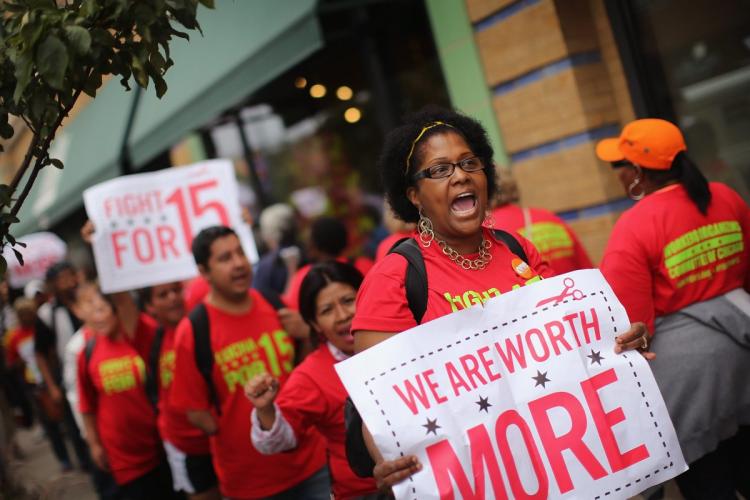Uncategorized
State Minimum Wage Hikes Raise Incomes Without Cutting Jobs

Minimum wage hikes that 18 states and Washington, D.C., have enacted since the last federal increase a decade ago have raised the pay of the lowest-paid workers without cutting the numbers of jobs or hours they work. That’s according to a new analysis by four economists, including three presidential economic advisors.
These findings should put to rest the claim by minimum wage foes that such increases lead to a loss in jobs.
The federal minimum wage, $7.25 hourly, has not risen in a decade, and many leisure and hospitality workers work for the “tipped minimum” of $2.13 hourly, which hasn’t increased in more than 22 years. As a result, the states and 60 cities have raised their minimum wages. Looking particularly at the impact of the wage hikes on the leisure and hospitality industry, federal data show that industry had 15.6 million workers in November, 34,000 more than a year before.
Those who have gained the most from the minimum wage hikes are among the poorest workers, the economists reported:
Minimum wage increases implemented over the past three years by 18 states and the District of Columbia have contributed to substantial increases in average wages for workers in low-wage jobs, helping to reverse a pattern of stagnant or falling real wages in the preceding years.
Moreover, this has occurred without any sign of an impact on employment or hours worked. As a result, average wages and weekly earnings for those who work in the lowest-paid jobs are at least 6.6 percent higher in these states than they would have been in the absence of these policy changes, based on a conservative [calculation].
While median average hourly earnings grew 1.4 percent for all workers since 2012, the median for the 10th percentile workers – the lowest-paid – rose 7.9 percent in 2014-15 alone, the fastest growth since 1968.
The report adds that the findings are “consistent with a well-established empirical literature in which minimum wage increases are often found to have no discernible impact on employment.”
They are also consistent with what Fight for $15 activists and labor unions like the Teamsters have been saying for years. The choice between higher wages versus job growth is a conflict largely invented by bosses who don’t want to shell out more of their corporate earnings to the workers who make their businesses possible.
Further, raising the minimum wage is not a zero-sum policy that helps low-wage workers to the detriment of workers higher up the income ladder. In fact, by raising standards at the bottom, a higher minimum wage is more likely to exert upward pressure and raise standards for all workers.
· Press Associates, Inc., contributed to this report.